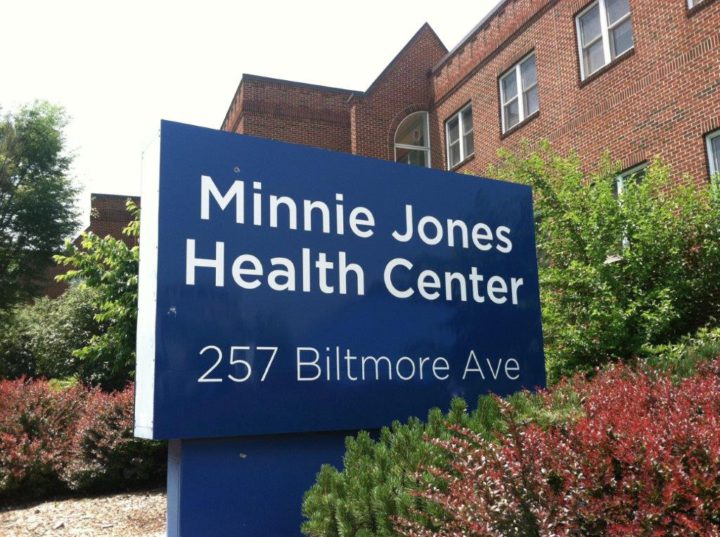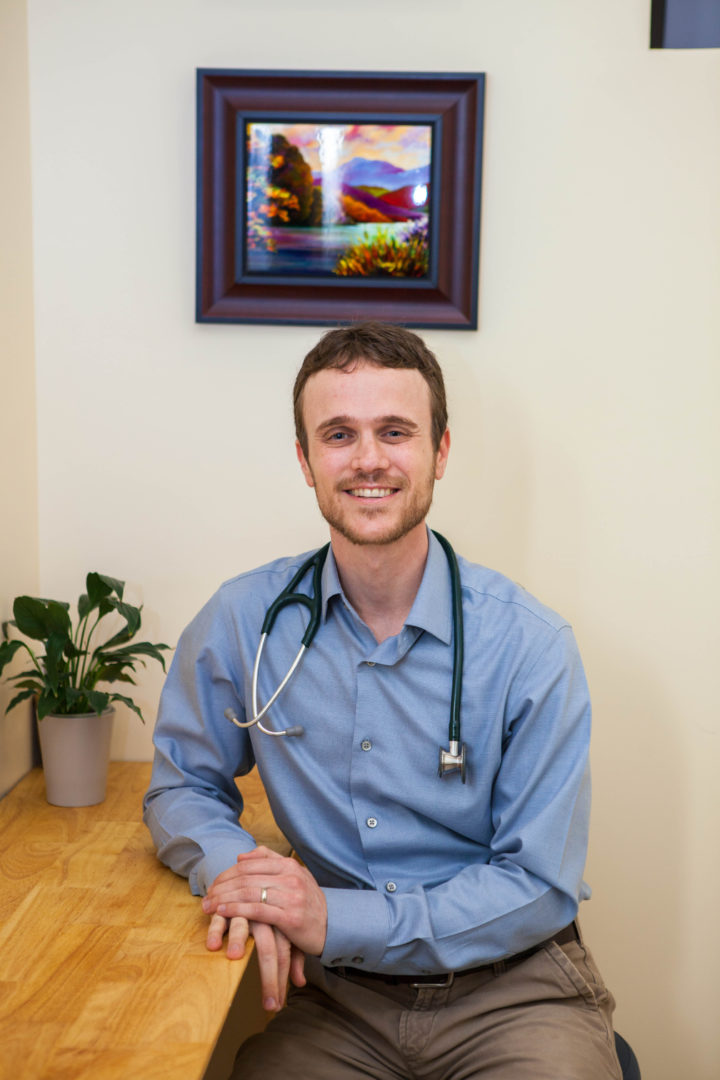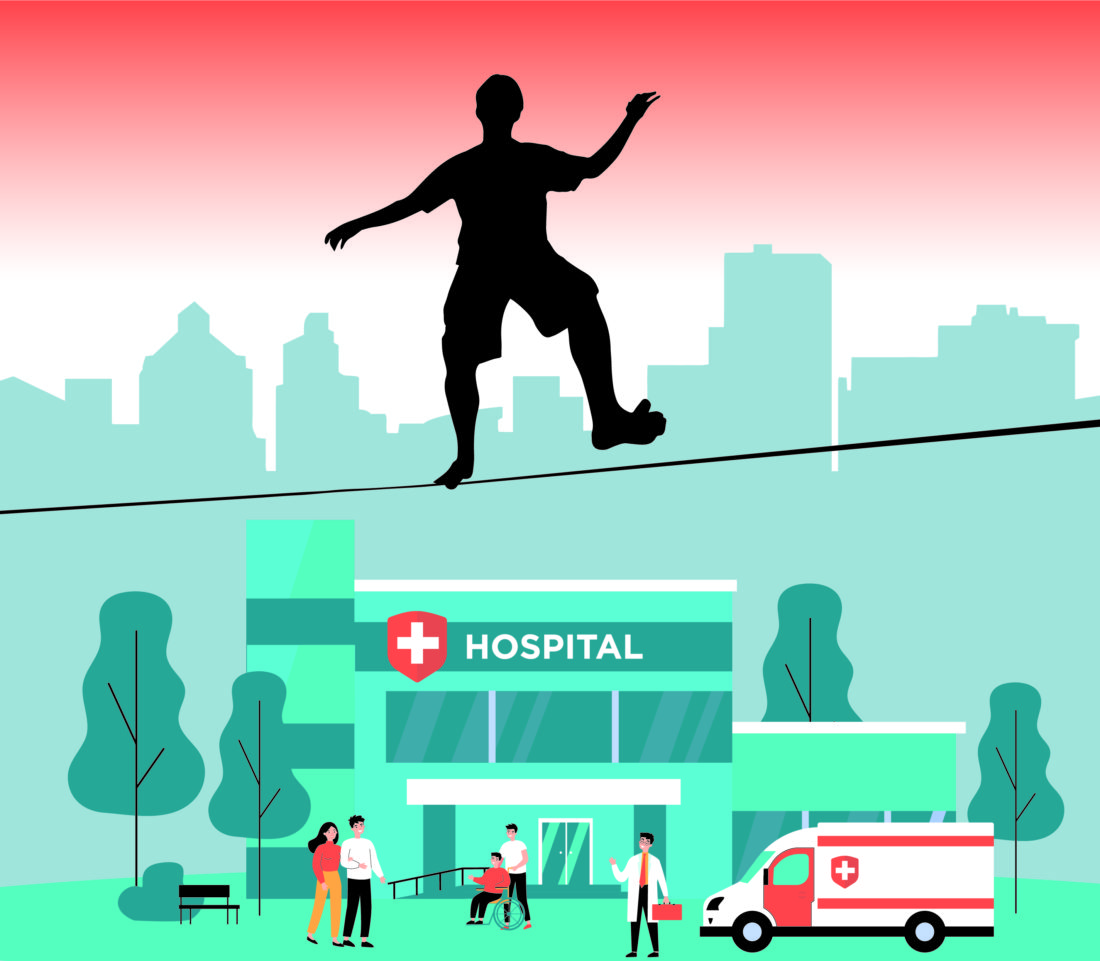Editor’s note: In addition to being on staff at Xpress, Brooke Randle works part time as a licensed agent at Hummingbird Insurance in Asheville.
Since 2014, the Affordable Care Act has helped millions of people get health insurance via a tax credit-based program that offsets costs based on age, family size and income. As of Jan. 15, 14.5 million people across the country were enrolled for coverage for 2022 through the federal Health Insurance Marketplace, including nearly 3 million new subscribers.
But the program still falls far short of covering all Americans. Tens of millions are left uninsured due to their inability to qualify for federal tax credits or because they have preexisting conditions that bar them from enrolling in private plans not subject to marketplace rules.
North Carolina remains one of 12 states that have yet to expand Medicaid, leaving about 1.1 million of the state’s roughly 10.5 million residents caught in the so-called coverage gap. And as of 2019, census data show, almost 30,000 Buncombe County residents lacked health insurance.
To get a handle on the local situation today, Xpress sought out various providers and cost-sharing networks whose services, woven together, create a social safety net for uninsured or underinsured residents and provide options beyond what the conventional insurance market offers.
Free for all
To address the lack of affordable health care for uninsured patients, the Asheville Buncombe Community Christian Ministry’s medical ministry and dental clinic serves uninsured people with an adjusted gross income below 200% of the federal poverty level: $27,180 for a single person and $36,620 for a family of two in 2022.
Beth Reeves, the clinic’s coordinator, says that in 2021, the facility harnessed the power of more than 850 volunteers, including 25 physicians and three nurse practitioners. Together, they provided a wide range of nonemergency health services for uninsured adults ages 18-65, including treatment for illnesses and minor injuries as well as crisis dental care. The clinic’s medication assistance program helps older adults obtain prescription drugs that Medicare won’t pay for; patients can also get help managing chronic conditions such as diabetes, high blood pressure or thyroid issues.
“These are folks that sometimes have avoided care because they didn’t want to enter a system or because they were concerned about cost,” Reeves explains. The initiative is funded by a combination of grants and support from more than 300 local churches.
Michael Wynn credits ABCCM’s free clinic with detecting what could have been a fatal condition. In fall 2019, says Wynn, while he was uninsured and staying at the nonprofit’s transitional housing facility for veterans, he sought care at the dental clinic. A routine checkup revealed a more dire diagnosis.
“I found out that I had hypertension and then found out that I was diabetic,” Wynn recalls. “And then from there, I found out I had prostate cancer.”
At that point, he says, ABCCM referred him to Project Access, a volunteer initiative led by the Asheville-based Western Carolina Medical Society that provides more extensive medical care for low-income, uninsured Buncombe and Madison county residents. Through that program, he received potentially lifesaving surgery at no cost.
“I’m actually cancer-free as of this past October,” Wynn reports, adding that without the free clinic, “I wouldn’t have found out about it.”
Reeves says Wynn’s case underscores the facility’s value, particularly for those who may not have had consistent access to care. “The free clinic belongs to the community,” she points out. “It’s run by ABCCM, but this is a service organization.”
Bridging the gap
Federally qualified community health clinics also aim to bridge the gap for both uninsured residents and folks who have insurance but are seeking more affordable care. In WNC, those centers include Western North Carolina Community Health Services, which operates the Minnie Jones Health Center; Appalachian Mountain Community Health Centers; Blue Ridge Health; and the Hot Springs Health Program, among others.

Warren S. Parker, director of development and collaboration at WNCCHS, says his organization’s clinic, which provides low-cost or free care for low-income residents, is funded through a combination of federal grants and local sources, as well as reimbursements from insurance, Medicare and Medicaid.
“Community health centers have been around since the 1960s,” Parker explains. “They were first funded as part of President Lyndon Johnson’s War on Poverty to address disparities in health care among the poor and uninsured.”
Founded in the mid-1990s, WNCCHS started out as a clinic for low-income people who were living with HIV.
The facility has since expanded its scope to the community at large. In 2020, it served about 14,000 patients, more than half of them from racial or ethnic minority groups, says Parker, and roughly 61% were uninsured.
Services, including both primary care and a full dental clinic, are offered on a sliding scale depending on the patient’s income. People with an adjusted gross income that’s less than 100% of the federal poverty level ($13,590 for an individual or $27,750 for a family of four) have no out-of-pocket costs, while people with incomes between 100% and 200% pay anywhere from $10-$30.
More than 90% of patients are at or below the 200% threshold, notes Parker, adding, “Nobody gets turned away because of an inability to pay. And we welcome people with insurance, because that helps us provide the care to those who don’t have it.”
What sets WNCCHS apart from other community health centers, says Parker, is its focus on serving people living with HIV (roughly 850 patients per year) and transgender individuals (about 500 patients).
“We have a very robust trans health program that provides full spectrum primary care, including hormone replacement therapy and mental health, also dental,” Parker explains. “It’s nice that we are able to provide specialized care to these two populations, among that larger population that we serve.”
Direct primary care

Dr. Chad Krisel, a family physician who’s co-owner of Integrative Family Medicine of Asheville, says that back in 2011, his practice sought to buck the insurance system altogether by introducing a model of direct primary care. The office in Asheville’s River Arts District does not accept insurance; instead, patients pay a monthly membership fee in exchange for discounted rates for care and prescriptions.
“If you think of any other insurance product — whether it’s auto, disability or home insurance — that product is there to help protect you against an unexpected catastrophe that you actually hope never happens. You’re definitely not going to use your insurance for a small leak in your sink or a routine oil change for your car. And if you did, what would end up happening is the price of that insurance would skyrocket,” Krisel explains.
That’s exactly what happened with health insurance starting in the early 1980s, he points out. Today, health insurance is expected to cover not only the unforeseen but also routine care, which he says has increased costs while reducing uninsured people’s ability to access preventive care.
“We just didn’t want to have anything to do with any of that. It just felt completely like the antithesis of why we went into medicine, which was to help relieve suffering,” Krisel explains. “So by extricating ourselves from this insurance system debacle, we are able to set fair prices. The goal of most direct primary care is that it is accessible for most folks, that it’s affordable, that there is complete price transparency, and that by doing so, we’re able to spend a much greater amount of time with patients.”
Dr. Carly Brown started her direct primary care practice, Ashewell Medical Group, in 2016. The internal medicine physician says that during many years in a conventional fee-for-service office, she saw how many uninsured people were essentially barred from access to primary care.
“The medical model in the U.S. is really geared toward people having insurance, despite the fact that we don’t basically have universal health care,” notes Brown. “We make primary care affordable for all people: We don’t distinguish.”
Today, there are eight direct primary care offices in Asheville.
Roughly 60% of Ashewell’s patients are uninsured, says Brown; Krisel says that’s true for perhaps 20%-30% of his practice’s patients. Both doctors emphasize that when possible, pairing a direct primary care membership with a relatively inexpensive high-deductible health insurance plan can be an effective way to cover day-to-day medical needs as well as unexpected major expenses.
A health savings account can help cover costs incurred under a high-deductible plan while also offering tax benefits, but the maximum annual contribution is just $3,650 for individuals and $7,300 for families, and the money can’t be used to pay insurance premiums.
“What we want is some sort of blend, where you have the quality of care that we provide at the prices that we provide, but people also have the ability to go to the hospital if they need it and not worry that they’ll have to file for bankruptcy,” Brown explains.
Krisel, meanwhile, says that “Primary care, generally speaking, will cover approximately 80% of your health care needs. So people will intentionally choose their insurance plan to have a higher deductible, knowing that the vast majority of their interaction is going to be with our office, which is outside of insurance anyway, and they end up saving many thousands of dollars.”
Besides lowering health care costs, however, both Krisel and Brown maintain that the direct service model enables higher-quality care as well as longer, more thorough interactions with patients. Each full-time direct primary care doctor, says Krisel, will typically “take on between 500 and 700 patients, whereas in a regular practice, it’s more like 2,500 patients.”
And unlike conventional offices that often bill patients for the difference between their charges and the insurance company’s negotiated rate, direct primary care offices are upfront about the cost of each service provided.
“We really do think it’s the health care delivery system of the future,” says Krisel. “The millionaire is coming to us because the quality of care is better. And the person who’s struggling financially is coming to us because it’s an affordable access point and we’re able to deliver equal care.”
Sharing the burden
Asheville resident Todd Fowler says he has both a direct primary care membership at Ashewell and a medical cost-sharing membership with Sedera. Established in 2014, the Texas-based nonprofit now boasts some 30,000 members across the country.
“There was a little bit of a leap of faith to take there,” says Fowler, who joined both programs about three years ago. “But Sedera really resonated with me.”
In such arrangements, members pay a monthly fee and then help cover the medical costs incurred by other members. Each person pays individual care providers directly at the cash (or uninsured) rate, which is often lower than what people with insurance are charged.
Once a patient has spent a specified amount on medical bills, they can request reimbursement for the remainder. Payment is not guaranteed, however: It will be limited by the plan’s rules and the amount of money available through the membership community’s cost-sharing mechanism, which is funded by the monthly fees.
“I think people forget that health insurance isn’t health care. There are different ways to pay for health care,” says Cindy Kimmel of Kimmel HR Solutions. The Asheville-based business helps clients find nontraditional health plans.
Medical cost-sharing networks have been around for decades, she says, but they’ve traditionally been religion-based. Sedera doesn’t ask members for any religious commitment, but it does ask them to commit to both maintaining a healthy lifestyle and to “being a good health care consumer” by seeking the best price for the specific services they need.
Kimmel adds that Sedera is open for enrollment year-round, and while no one is excluded based on income, people with preexisting conditions may be subject to a waiting period before they can be reimbursed for related care.
For his part, Fowler says that after taking the leap from traditional insurance, he now provides each of his loan agency’s nine employees with both a cost-sharing policy and a membership in Ashewell’s direct primary care system. So far, he says, the combination has been a cost-effective alternative to group health insurance plans.
“A number of my employees have used it for everything from hysterectomies to broken bones. And me, I’m a hypochondriac, so I’m always calling and getting appointments and bloodwork,” he jokes. “But so far, Ashewell has been fantastic, and Sedera has paid, no problem. And everybody’s just super happy with it.”
When the unexpected happens
Although Asheville does have a range of primary care options for people at all income levels, sometimes that’s not enough. The potentially lifesaving preventive care these facilities offer may reveal more serious medical conditions requiring hospitalization and/or surgery.
For this reason, every one of the providers Xpress interviewed stressed the need for patients to also have some level of catastrophic insurance coverage.
This year’s open enrollment period for the federal Health Insurance Marketplace officially ended on Jan. 15 after a four-week extension. But people with an adjusted gross income less than 150% of the federal poverty level — $19,320 for an individual or $39,750 for a family of four — can enroll in both low- and high-deductible plans year-round in 2022.
And for those who don’t qualify for Marketplace subsidies, more affordable short-term insurance plans that are available throughout the year are also an option. They screen for preexisting conditions, however, and exclude certain types of treatment that are covered by Marketplace policies.
Meanwhile, uninsured people who are facing high bills due to an emergency room visit can also seek help through something called retroactive or medically needy Medicaid.
“Let’s say, in December, someone had to go into the hospital to have surgery and ended up with a $50,000 bill,” posits Phillip Hardin, the director of Buncombe County’s Economic Services Division. “That person could apply in January, just for December, for that bill, and we might be able to cover a pretty sizable portion of it. They might only be eligible for Medicaid for that one month, but it may pay 95% of your hospital bill.”
Hardin adds that children, pregnant women and low income and disabled people may be eligible for other Medicaid programs, and that roughly 20 such programs exist in the state.
If Carly Brown had her way, she says, “We would advocate for universal coverage of some sort for all people. But the fact is that we’re not in charge of that. So what we do is provide care despite that, but we would never recommend not having any catastrophic coverage. Surgeries are all very, very expensive.”
Hardin says his office is available to answer questions and provide guidance concerning social programs that also contribute to county residents’ overall health and wellness.
“We work really hard on trying to provide a whole range of services aimed at keeping people healthy, which could include things like food or housing assistance. People don’t necessarily think of those kinds of things in terms of having good health, but they’re certainly very important.”



Before you comment
The comments section is here to provide a platform for civil dialogue on the issues we face together as a local community. Xpress is committed to offering this platform for all voices, but when the tone of the discussion gets nasty or strays off topic, we believe many people choose not to participate. Xpress editors are determined to moderate comments to ensure a constructive interchange is maintained. All comments judged not to be in keeping with the spirit of civil discourse will be removed and repeat violators will be banned. See here for our terms of service. Thank you for being part of this effort to promote respectful discussion.